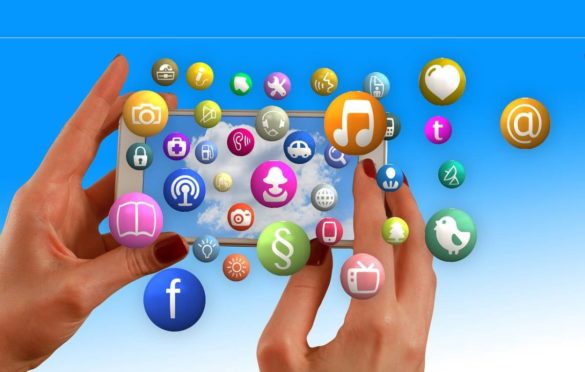
What is a Smartphone ? – Definition, Function, And More
Table of Contents
Define Smartphone
Smartphones are a new type of mobile phone that incorporates much more processing. And mobility than Traditional devices. The development of microelectronic technology and telecommunication networks has made their appearance and popularization possible. They are one of the multifunction technological devices most demanded by users today.
From the hardware point of view, a smartphone is a pocket computer with accumulated functions and possibilities that, thanks to microelectronic technologies, have collected positions and opportunities that bring it closer to other more powerful and versatile process devices. Smart mobile phones include a minimum, a keyboard (physical or virtual), a standard touch screen, and a large memory size. Today, the borders and the coast between laptops, tablets, and smartphones are increasingly blurred, and smartphones are entering other devices. Sometimes the main difference is only in the size and shape of the keyboard or screen.
Function Of Smartphone
An intelligent terminal of these characteristics requires a specific operating system to make it work, fully adapted to mobility and the possibilities associated with intelligence. There are currently different operating systems of this nature, and those that dominate the market are iOS, Android, WP7, Symbian, Blackberry, etc.
Smartphones carry out more and more due to the installation by the user of applications (apps), making it a potent tool beyond already well-established services, such as voice, e-mail, or Internet access. Applications bring the user closer to a new world of information, entertainment, and services that did not exist until recently. Thanks to them, the devices allow us to take photos, send or receive text messages, record videos, search for medical information, buy electronically, or do online banking activities.
Suppose we add the operating system, the programs and applications that it can store, and the mobile networks to connect to the smartphone’s physical support. In that case, we have all the elements that make it extraordinarily interesting. Smartphones are also smart because of the possibilities offered by mobility, which is based on advanced networks.
Until the emergence of third-generation or 3G networks, the bandwidth or data speeds necessary for smartphones to take advantage of all their features were not available. With the expansion of 3G networks and the progressive introduction of 4G, mobile phones have elevated and show their intelligence.
In Summary
Smartphones are beginning to be the best-selling mobile terminals, especially in developed countries, and have become a virtual device for users, especially the youngest .They are very close most of the time, it accompanies them next to him on the bedside table while they sleep, he is checked very frequently, etc. Those same users recognize that they cannot live without it in a very high percentage of cases.
From a technological point of view, smart mobile phones put unprecedented computing power at their owners’ disposal . Allow them to be permanently fast connection. These events have an enormous number of consequences. One of them is that telecommunication networks must cope with a volume of data traffic that grows exponentially.
That forces telecommunications operators to face significant challenges and manage their networks more and more efficiently. Another consequence is that users .The companies or institutions they work with begin to see the possibilities of sharing terminals. This phenomenon that revolutionizes communications in the company is called BYOD (Bring Your Device or bring your device).
These consequences are just a sample of the digital world that awaits us .Smart mobile phones will help us reach. A world in which mobility, data, and applications will help us grow as individuals and society.


